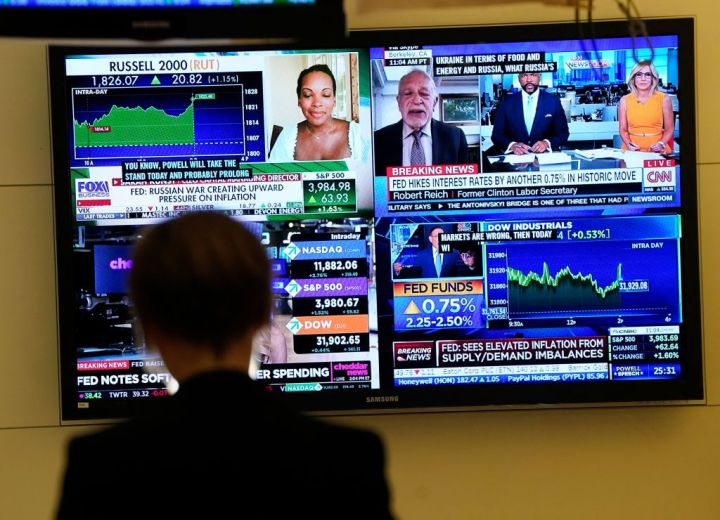
Banks are preparing for more loans to go bad as interest rates rise
Banks are preparing for more loans to go bad as interest rates rise

Consumers have been steadily taking on more debt throughout the pandemic — that’s down to strong spending and higher prices. But as interest rates rise, many lenders are keeping an eye on whether consumers can pay it back.
Even though rates have been climbing, there’s still a lot of demand for mortgages, home equity lines of credit and business loans at Bay State Savings Bank in Massachusetts.
CEO Peter Alden said his customers’ finances seem pretty healthy. “Our delinquency rates are still low, and our backlog of business is still strong,” he said.
But Alden’s been thinking that could change in the coming months.
“I just have a feeling between, you know, increased costs of everything, that delinquency would have to go up, as people are trying to still put food on the table and heat their homes for this coming winter and all of that.”
One sign that delinquencies could rise? Consumers are saving half as much money as they were a year ago.
Mayra Rodriguez Valladares with MRV Associates said many people have been dipping into their savings.
“So they need more cash to pay off credit cards. They need more cash to pay that gasoline, you know, any of their loans,” Valladares said. “And so what that means is that you’re going to also start, quite likely, seeing reductions in deposits at banks.”
As a result, Valladares said, lenders have been taking steps to make sure they’re prepared for more delinquent loans.
“So that means that banks have additional capital that they have to allocate for unexpected losses. And it certainly means they have to increase their loan-loss reserves.”
In other words, the cash banks set aside in case their existing loans go bad.
“We are trying to stress test the portfolios heavily and just run models on what could happen in case the performance of certain types of borrowers decline,” said Dominik Mjartan, CEO of Optus Bank in South Carolina.
The bank has been taking a closer look at new borrowers and the loans it’s already made, he added.
“We are trying to read the tea leaves, just like everyone else is.”
So far, the bank’s loan approval rate hasn’t changed much, Mjartan said. But even though his customers’ balance sheets still look strong, he said, it’s better to prepare when times are good.
There’s a lot happening in the world. Through it all, Marketplace is here for you.
You rely on Marketplace to break down the world’s events and tell you how it affects you in a fact-based, approachable way. We rely on your financial support to keep making that possible.
Your donation today powers the independent journalism that you rely on. For just $5/month, you can help sustain Marketplace so we can keep reporting on the things that matter to you.


















